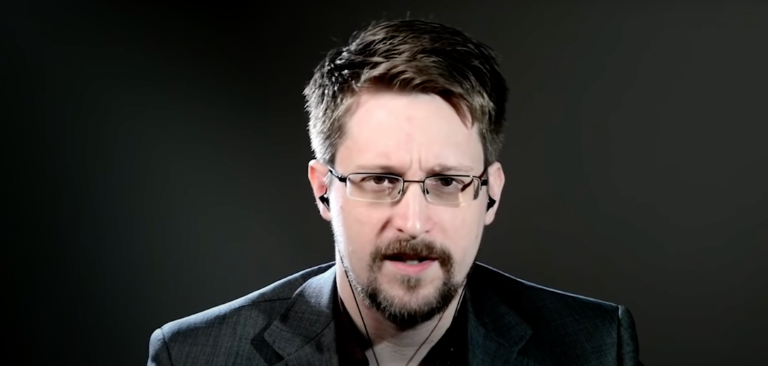Pulitzer-prize winning journalist Glenn Greenwald has interviewed NSA whistleblower Edward Snowden.
Greenwald was the journalist Snowden contacted in 2013 when he decided to go public with documents revealing global mass surveillance carried out by US and British spy agencies.
In the video interview published on Wednesday, Greenwald and Snowden, who is living in exile, spoke about a range of issues, including the state of the internet today and how it compares to its early days.
Greenwald wanted Snowden to recall what the internet was like in its infancy, for the benefit of those who are too young to remember it and only know it the way it is today – marked by centralization, and corporate Big Tech control and censorship.
Snowden spoke about the values that made the web exciting in the early days, when it was creative and cooperative, but also decentralized by virtue of most websites being built by individuals. These were small and not particularly sophisticated but “original and human” – a value that was lost as the internet became more and more centralized with the influx of big corporate and commercial players.
Another difference Snowden spoke about was the ability of people to protect their identities, choosing their own names and staying outside the system of personal data collection and tracking made possible by real identity rules imposed by Facebook and others.
And it wasn’t a commercial space, Snowden continued – but then it started turning into that, with companies, governments and institutions moving in, competing with each other and making it “less for the individual and more for them.”
Today, he said, even those whose email is on their own server, private and secure, who then send a copy to somebody with a Gmail account – Google has that copy.
This is emblematic of the way a small group of companies is now able to learn more and more about everybody’s lives through access to content people share, even in private accounts and direct messages that are nevertheless increasingly visible to Facebook, Instagram, Twitter.
“So they know everything about us, at the same time they work in very secretive ways and they have very little due process,” Snowden said.
If your YouTube or Gmail account got banned, you can do nothing, he added – because you’re not Google’s customer and the giant has no customer service for you, the regular user – only for advertisers.
Greenwald asked if it was misguided to think that as long as Big Tech’s online censorship and corporate regulation targets those who are considered to be misfits and extremist people should be fine with it – and only start objecting once it hits themselves or those they agree with.
Snowden thinks that the big picture that is rarely considered is that censorship often targets people for who they are and what their beliefs are, rather than what they are actually saying.
“Are we talking about an intentional call to violence that creates imminent threat? Well that’s already not protected under US law,” he remarked.
What Snowden finds interesting is that those who want to silence others for using the internet to call for violence are not suing them – but are turning to and putting pressure on tech companies to silence these people on their behalf.
The reason this is popular is because some of those targeted are “terrible people,” he said. But that’s also indicative of the way restrictive laws are made and sold to the public, when worst possible examples are singled out to justify controversial action.
One example are the attempts to introduce legislation that would outlaw encryption – when things like child pornography are always brought up as an argument in favor of the move, Snowden said.
“Take this small group of worst people in the world and use them as a wedge – if you don’t give us X concession, then Y will happen,” he explained the thinking behind it.
Even with terrorism, Snowden continued, the threat comes from a small group of people, but after each attack authorities want even more powers, even though they’ve already had plenty to stop the threat before the act happened.
When it comes to censorship and free speech online, pressure groups imposing it don’t want to go the hard way of using the legal system, instead wanting to be granted “exceptional powers.”
“They go: let’s pressure companies to do this on their own, beyond what the law affords,” he said, likening it to how spy agencies work to forge relationships “beyond” the law.
This is effective because Big Tech companies, most of whom are really ad companies, worry about what advertisers think, Snowden explained, and that’s why they accept to impose censorship that’s beyond their legal obligations, and even if they internally don’t think it’s right.
Click here to display content from YouTube.
Learn more in YouTube’s privacy policy.










